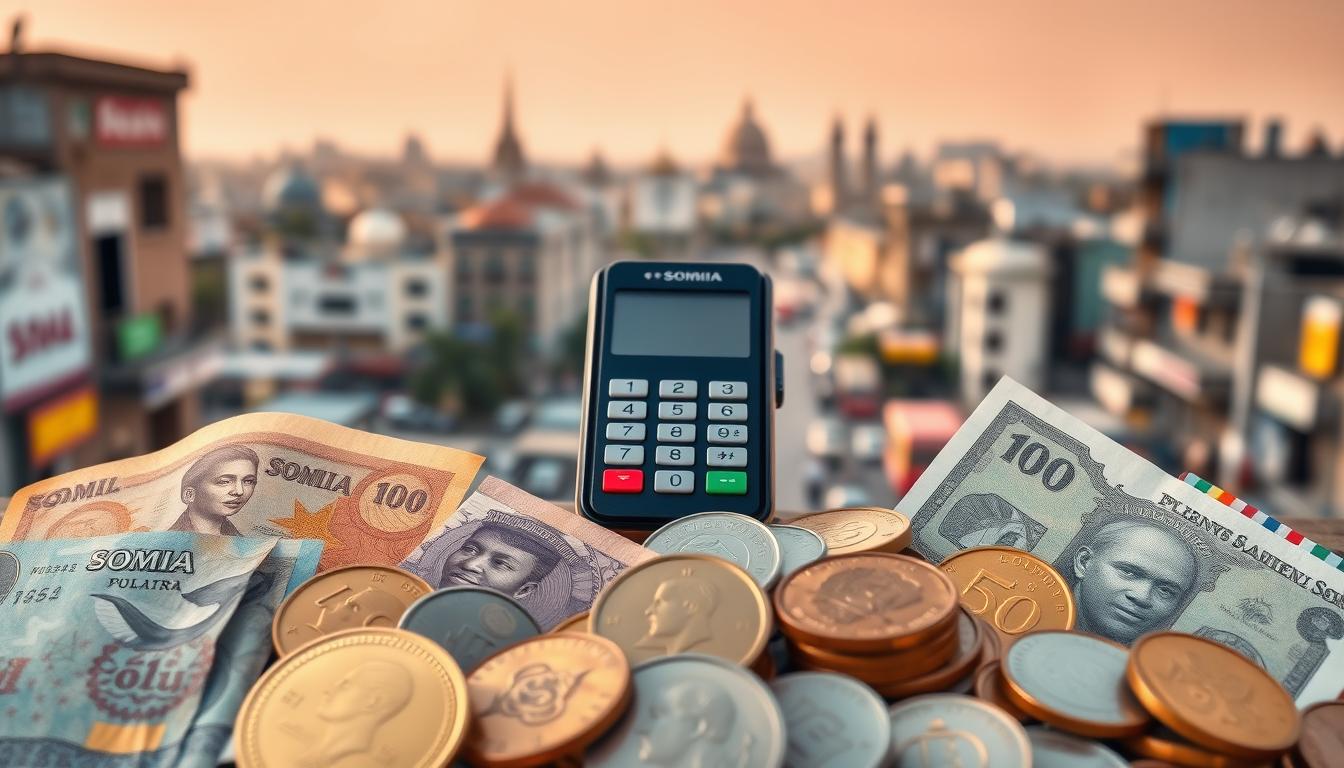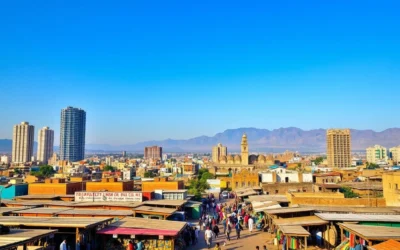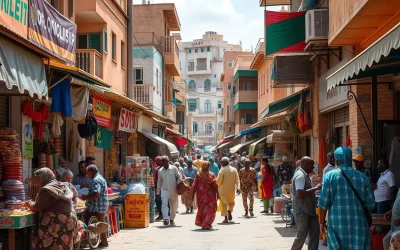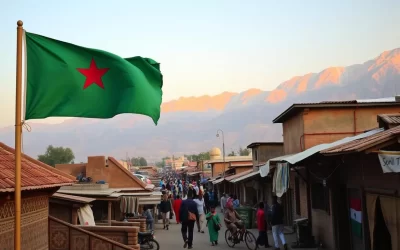Did you know that over 30% of cash in circulation in some regions is counterfeit? This surprising fact highlights the importance of being prepared when dealing with local currency and payment systems during your travel.
Navigating financial systems in unfamiliar places can be tricky. Understanding the local currency and accepted payment methods is essential to avoid scams and ensure a smooth experience. From counterfeit bills to legal restrictions, being informed can save you time and money.
This guide will walk you through the essentials. You’ll learn about exchange rates, the availability of ATMs, and tips for staying secure. Whether you’re planning a short visit or an extended stay, this information will help you manage your finances confidently.
Ready to dive deeper? Let’s explore the key aspects of handling money and payments to make your travel experience hassle-free.
Understanding Somalia’s Currency Landscape
Handling money in a foreign country can be tricky, especially when dealing with unique currency systems. In this region, you’ll encounter two primary currencies: the Somali shilling and the Somaliland shilling. While they share a name, their usage and acceptance vary significantly.
Somali Shilling and Somaliland Shilling Differences
The Somali shilling is widely used in most parts of the country, while the Somaliland shilling is specific to the northern area. Here’s what you need to know:
- The Somali shilling is the official currency, accepted in major cities like Mogadishu.
- The Somaliland shilling is not recognized outside its region, so it’s essential to exchange it before leaving.
- Exchange rates can fluctuate, so always check the current rate before making transactions.
Counterfeit Concerns and Local Market Realities
Counterfeit cash is a significant issue in this region. Here’s how to stay safe:
- Verify bills carefully, especially in local markets where counterfeit notes are more common.
- Stick to trusted exchange points to avoid scams.
- Carry smaller denominations to minimize risks.
Understanding these nuances will help you navigate the market confidently and avoid unnecessary challenges.
Essential Payment Methods for Your Trip
Choosing the right way to pay can save you time and money. When traveling, it’s important to understand the local payment landscape. This ensures smooth transactions and helps you avoid unnecessary fees.
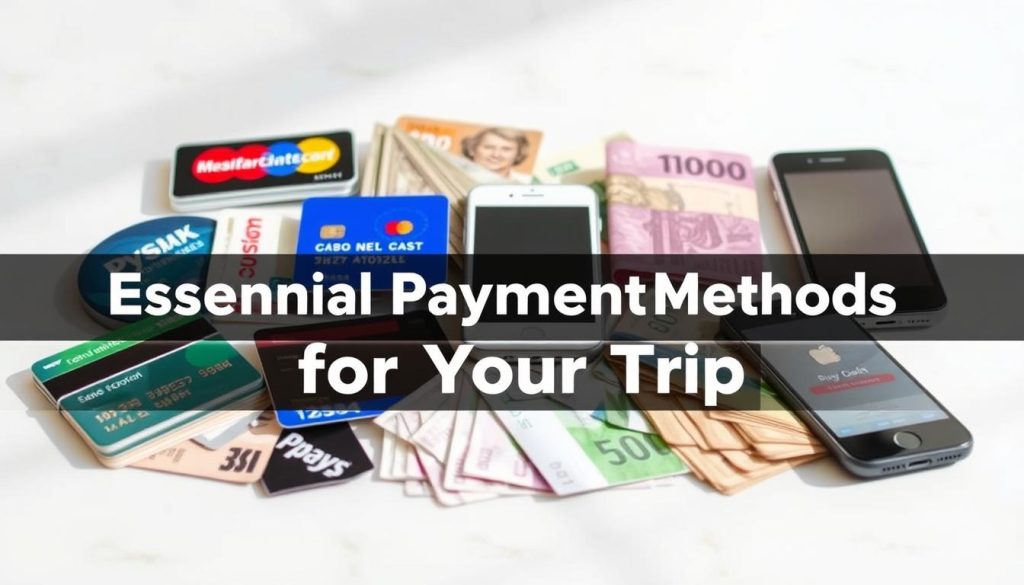
Cash and ATMs: What to Know
Cash remains a widely accepted option in many places. Here’s what you should keep in mind:
- ATMs are available in major cities, but their reliability can vary. Always carry some cash as a backup.
- Check with your bank about international withdrawal fees to avoid surprises.
- Smaller denominations are easier to use in local markets and for tipping.
Using a card for withdrawals can be convenient, but it’s wise to have a mix of payment methods.
Digital Payment Platforms and Mobile Options
Digital payment platforms are gaining popularity worldwide. Here’s why they’re worth considering:
- Mobile services like Apple Pay and Google Pay offer quick and secure transactions.
- They reduce the need to carry large amounts of cash, enhancing safety.
- Always verify if these services are supported in your destination before relying on them.
These options can simplify your travel experience and provide added flexibility.
By understanding these payment methods, you can manage your finances efficiently and focus on enjoying your trip.
Getting the Most from Prepaid Travel Cards
Why are prepaid travel cards becoming a top choice for globetrotters? These cards offer a blend of security, convenience, and cost-effectiveness that traditional payment methods often lack. Whether you’re planning a short trip or a long journey, prepaid cards can simplify your financial planning.
Benefits and How to Use Them
Prepaid travel cards come with several advantages. First, they allow you to load multiple currencies, reducing the need for constant exchanges. This feature is especially useful in regions with fluctuating exchange rates. Second, they often have lower fees compared to credit cards or traditional bank accounts.
Here’s how to make the most of your prepaid card:
- Security: Unlike cash, if your card is lost or stolen, you can easily block it and recover your funds.
- Lower Fees: Many providers, like Revolut and Wise, offer competitive exchange rates and minimal transaction fees.
- Budget Control: You can only spend what’s loaded on the card, helping you stick to your travel budget.
Using a prepaid card is straightforward. Simply load your desired amount, choose your preferred currencies, and start spending. Most cards come with user-friendly apps to track your expenses in real-time.
Compared to credit cards, prepaid options eliminate the risk of overspending and accumulating debt. They also provide better exchange rates than many traditional banks, saving you money on every transaction.
When selecting a provider, look for features like multi-currency support, low fees, and reliable customer service. Popular choices like Revolut and Wise are known for their transparency and ease of use.
By choosing a prepaid travel card, you can enjoy a hassle-free payment experience and focus on making the most of your journey.
Currency Exchange Tips and Best Practices
Exchanging money in a foreign country requires careful planning and awareness of local practices. Knowing where and how to exchange your funds can save you both time and avoid unnecessary fees. This section provides practical tips to help you navigate the process smoothly.

Where to Safely Exchange Your Money
Choosing the right place to exchange your money is crucial. Banks and official exchange bureaus are the safest options. They offer reliable rates and reduce the risk of counterfeit shilling notes. Avoid street vendors or unofficial exchange points, as they often charge higher fees and may not be trustworthy.
Here’s a quick comparison of popular exchange services:
| Service | Exchange Rate | Fees | Transfer Time |
|---|---|---|---|
| Wise | Mid-market rate | Less than 1% | 1-3 days |
| XE | Competitive | No fees for $3,000+ | 1-3 days |
| OFX | Competitive | No transfer fees | 3-5 days |
Understanding Exchange Rates and Fees
Exchange rates can vary depending on the time and location. Always check the current rate before making a transaction. Services like Wise and XE offer mid-market rates, which are often more favorable than those at local banks.
Be aware of hidden fees. Some providers charge additional costs for transfers or currency conversions. Planning your exchanges in advance can help you maximize the value of your money.
Here’s a tip: Use digital platforms like Revolut or Wise for real-time rate tracking and lower fees. They also allow you to lock in rates before exchanging, protecting you from sudden fluctuations.
By following these tips, you can ensure a secure and cost-effective exchange experience.
Using ATMs and Avoiding Hidden Fees
Navigating ATMs in unfamiliar regions can be tricky, but with the right tips, you can avoid unnecessary fees. Knowing how to use ATMs safely and effectively is essential for managing your cash while traveling. This section will guide you through the process and help you minimize hidden costs.
First, always choose ATMs located in secure areas, such as banks or shopping centers. These locations reduce the risk of card skimming or theft. Avoid standalone machines in isolated areas, as they may not be as reliable.
Here are some practical tips for using ATMs:
- Check for fees: Many ATMs charge withdrawal fees, especially for international cards. Use ATMs affiliated with your bank to avoid extra charges.
- Withdraw larger amounts: To minimize fees, withdraw larger sums of cash less frequently. However, avoid carrying too much money at once for safety reasons.
- Decline dynamic currency conversion: Always choose to be charged in the local currency to get a fair exchange rate.
Planning your withdrawals is also crucial. Make sure you have enough cash for daily expenses, especially in areas where payment options are limited. This is particularly important for transportation or small purchases in local markets.
Finally, monitor your transactions through your bank’s app or service. This helps you track spending and spot any unauthorized charges immediately. By following these steps, you can use ATMs confidently and keep your finances secure.
Security and Legal Considerations When Handling Cash
Ensuring your safety while handling money abroad is a top priority. Understanding local laws and taking precautions can help you avoid unnecessary risks. This section covers essential tips to keep your funds secure and comply with government regulations.

Local Laws and Identification Requirements
When traveling, it’s crucial to know the laws related to money handling. Some regions require specific identification documents for transactions. Always carry your passport or a government-issued ID to avoid complications.
Here’s a quick overview of what you might need:
- Passport: Essential for most financial transactions and currency exchanges.
- Visa: Some areas may require proof of legal entry for certain services.
- Local Permits: In restricted zones, additional permits might be necessary.
Being prepared with the right documents ensures smooth interactions and reduces the risk of being detained.
Protecting Your Money on the Road
Keeping your cash safe while traveling requires a mix of common sense and practical strategies. Avoid carrying large amounts of money in public areas. Instead, use secure storage options like hotel safes or hidden travel pouches.
Here are some tips to safeguard your funds:
| Tip | Why It Helps |
|---|---|
| Use a money belt | Keeps cash hidden and secure on your person. |
| Divide your funds | Store money in multiple locations to minimize loss. |
| Avoid flashy displays | Reduces the risk of attracting unwanted attention. |
By following these steps, you can protect your money and focus on enjoying your trip.
Remember, staying informed and cautious is the best way to ensure your security in any area.
Exploring Digital Payments and Mobile Banking
Digital payments are transforming how people manage money in developing regions. Mobile banking apps offer a secure and efficient way to handle transactions, especially in areas where traditional banking is limited. Whether you’re planning a trip or already at your destination, understanding these tools can simplify your financial management.
How to Set Up and Use Mobile Payment Apps
Setting up a mobile payment app is straightforward. First, download a trusted app like Apple Pay, Google Pay, or a local option such as M-Pesa. Next, link your bank account or credit card to the app. Most apps guide you through the process with clear instructions.
Here’s why mobile payments are a great option:
- Convenience: Pay for goods and services with just a few taps on your phone.
- Security: Transactions are encrypted, reducing the risk of fraud.
- Cost-Effective: Many apps have lower fees compared to traditional banking.
Availability of these services can vary by region. Before relying on mobile payments, check if your destination supports them. Apps like M-Pesa are widely used in some areas but may not be available everywhere.
Digital payment platforms also offer features like expense tracking and instant transfers. This makes them an excellent way to manage your money while traveling. Always ensure your app is updated and use strong passwords to stay secure online.
Credit Cards Versus Debit Cards in Somalia
When planning your trip, understanding the differences between credit and debit cards is crucial. In this country, credit cards are rarely accepted, making them less practical for daily transactions. Debit cards, on the other hand, are more versatile and widely used for cash withdrawals at ATMs.
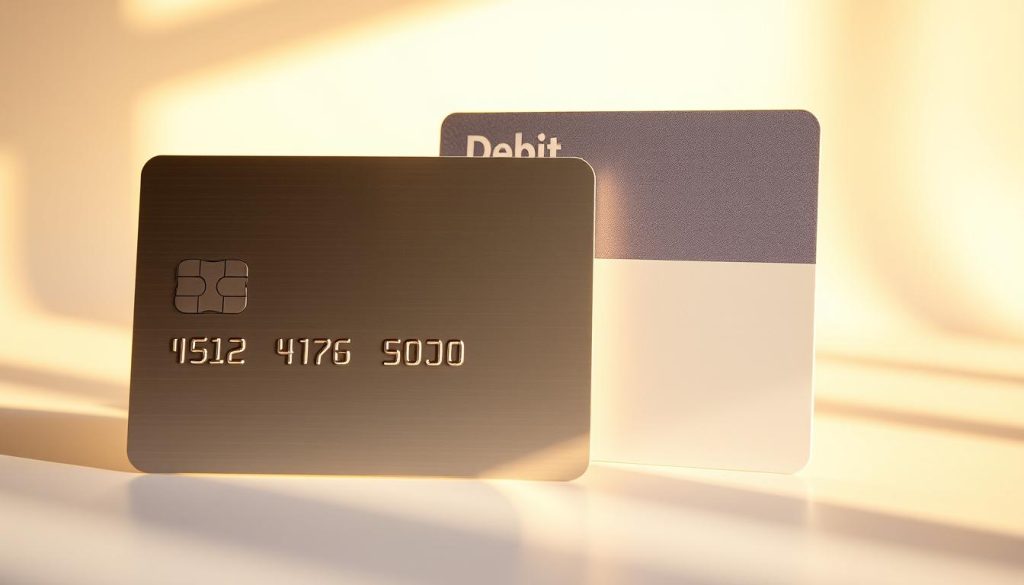
Using a credit card in this region comes with limitations. Most establishments do not accept them, and even in places where they might, the risks of fraud or theft are high. Additionally, currency advances against credit cards are not possible, further reducing their utility.
Debit cards, however, offer a more reliable payment option. They allow you to withdraw cash in U.S. dollars, which are widely accepted across the country. This makes them a safer and more practical choice for managing your finances during your visit.
Here’s why debit cards are often the better option:
- Accessibility: ATMs in major cities like Mogadishu dispense U.S. dollars, making cash withdrawals straightforward.
- Security: Debit cards reduce the need to carry large amounts of cash, minimizing the risk of theft.
- Convenience: They are accepted at most ATMs, providing a hassle-free way to access funds.
While credit cards may offer travel insurance and other benefits, their limited acceptance in this region makes them less useful. For a smoother experience, rely on a debit card for your payment needs and carry some cash as a backup.
Navigating Payment Challenges in Sensitive Areas
Crossing borders often comes with unique financial challenges that require careful planning. Whether you’re traveling for business or leisure, understanding how to manage your payments in sensitive areas can make your trip smoother and safer.
Tips for Border Crossings and Cash Management
When crossing borders, cash is often the most reliable payment method. However, carrying large amounts can be risky. Here’s how to manage your money effectively:
- Divide your cash: Keep funds in multiple locations to minimize loss in case of theft.
- Use secure storage: A money belt or hidden pouch can keep your cash safe while traveling.
- Know the rules: Some countrys have strict regulations on the amount of cash you can carry. Always check before you go.
It’s also wise to have a backup plan. Carry a prepaid travel card or ensure your debit card works internationally. This way, you can access funds even if your cash is lost or stolen.
Handling Unforeseen Situations Safely
Emergencies can happen at any time, especially in unfamiliar areas. Having a financial safety net is crucial. Here’s what to do:
- Keep emergency funds: Set aside a small amount of cash for unexpected situations like lost luggage or medical expenses.
- Understand visa requirements: Some visas require proof of sufficient funds. Always carry the necessary documents to avoid delays.
- Stay informed: Research local payment options and potential risks before your trip.
By preparing for the unexpected, you can handle any financial challenges with confidence. Remember, staying informed and cautious is the best way to ensure your safety in any area.
Traveler Stories and Real-Life Experiences
Traveling to unfamiliar destinations often brings unexpected challenges, especially when it comes to managing your finances. Real-life stories from fellow travelers can offer valuable insights and practical tips to make your trip smoother. Here, we share some engaging anecdotes and advice from those who’ve navigated the complexities of payment systems in unique areas.
Overland Journeys and Payment Anecdotes
One traveler shared their experience of an overland journey through remote areas. “Carrying cash was essential, but we had to be cautious,” they recalled. “In one small village, the local hotel only accepted cash, and ATMs were miles away.” This highlights the importance of planning ahead and having multiple payment options.
Another person recounted how their family faced unexpected payment issues at a popular destination. “We thought our credit card would work everywhere, but it didn’t. Thankfully, we had some backup cash,” they said. These stories remind us to always prepare for the unexpected.
Advice from Seasoned Visitors
Seasoned travelers often emphasize the value of flexibility. “Always carry smaller denominations of cash,” advised one experienced visitor. “It’s easier to pay for small purchases and avoids the hassle of getting change.” This tip is especially useful in local markets and rural areas.
Another piece of advice is to research your destination thoroughly. “Know the local payment methods and exchange rates before you go,” suggested a frequent traveler. “It saves time and reduces stress.” By learning from others’ experiences, you can avoid common pitfalls and enjoy a more seamless trip.
These real-life stories and practical tips can help you navigate the financial challenges of travel with confidence. Whether you’re exploring bustling cities or remote villages, being prepared ensures a smoother journey.
Analyzing Exchange Rates for the Somali Shilling
Exchange rates for the Somali shilling can significantly impact your travel budget, so it’s important to stay informed. Understanding how these rates fluctuate and what drives them can help you make smarter financial decisions during your trip. Whether you’re planning a short visit or an extended stay, knowing the trends can save you money and avoid unnecessary stress.
Market Trends and Currency Fluctuations
The value of the Somali shilling is influenced by various factors, including global economic conditions and local market dynamics. Over the past year, the shilling has experienced significant fluctuations, often tied to changes in the region’s economic stability. For example, the reliance on mobile money services has reduced the circulation of physical shillings, impacting their value.
Here’s a breakdown of key trends:
- Global Factors: Changes in the global economy, such as shifts in oil prices or international trade, can affect the shilling’s value.
- Local Dynamics: The state of the local economy, including inflation rates and government policies, plays a major role.
- Mobile Money Dominance: With 73% of adults using mobile money services, the shilling’s relevance in daily transactions has decreased.
Timing Your Currency Exchanges
Timing is crucial when exchanging money. Exchange rates can vary significantly over time, so planning your transactions can save you money. For instance, rates tend to be more favorable during periods of economic stability. Here’s what to consider:
- Monitor Trends: Use tools like Wise or XE to track exchange rates in real-time.
- Avoid Peak Times: Rates may be less favorable during high-demand periods, such as holidays.
- Plan Ahead: Exchange larger amounts when rates are favorable to minimize fees.
Historical Trends and Future Predictions
Historical data shows that the Somali shilling has faced consistent volatility due to economic challenges. For example, the lack of a strong central bank role has led to frequent devaluations. Looking ahead, experts predict that the shilling’s value will remain unstable unless significant reforms are implemented.
Here’s a comparison of exchange rate trends over the past five years:
| Year | Average Exchange Rate (SOS/USD) | Key Events |
|---|---|---|
| 2019 | 23,000 | Economic instability due to political unrest |
| 2020 | 24,500 | COVID-19 pandemic impacts global trade |
| 2021 | 26,000 | Increased reliance on mobile money services |
| 2022 | 27,500 | Inflation spikes due to rising food prices |
| 2023 | 28,000 | Continued devaluation amid economic challenges |
By staying updated on these trends, you can make informed decisions about when and how to exchange your money. This ensures you get the best value for your payments and enjoy a smoother travel experience.
Somalia: Ultimate Travelers Guide to Currencies & Payments
Managing your finances while traveling requires careful planning and awareness of local practices. This guide has covered essential topics to help you navigate payment systems, currency exchanges, and financial security. Here’s a recap of the key points to ensure a smooth trip.
Understanding Local Currency and Payment Methods
In many destinations, cash remains the primary payment method. However, digital platforms and prepaid cards are becoming increasingly popular. Here’s what you need to remember:
- Cash is king: Always carry smaller denominations for local markets and tipping.
- Digital options: Mobile payment apps like M-Pesa can simplify transactions in certain areas.
- Prepaid cards: These offer security and flexibility, especially for multi-currency needs.
Navigating Exchange Rates and Fees
Exchange rates can significantly impact your budget. To get the best value:
- Monitor trends: Use tools like Wise or XE to track real-time rates.
- Plan ahead: Exchange larger amounts when rates are favorable to minimize fees.
- Avoid hidden costs: Be aware of additional charges for transfers or conversions.
Safety and Legal Considerations
Protecting your money is crucial, especially in unfamiliar areas. Here are some tips:
- Secure storage: Use money belts or hidden pouches to keep cash safe.
- Know the rules: Some destinations have strict regulations on cash limits or visa requirements.
- Stay informed: Research local payment options and potential risks before your trip.
By following these insights, you can manage your finances confidently and focus on enjoying your journey. Whether you’re exploring bustling citys or remote areas, being prepared ensures a smoother experience.
Conclusion
Planning your finances carefully ensures a smooth and secure journey. Prioritize safety in every transaction, whether you’re dining at a local restaurant or exploring cultural landmarks. Understanding the culture and respecting local customs can enhance your experience and help you navigate any situation with ease.
Always carry your passport and ensure you meet all entry requirements. This includes having the necessary forms and understanding the way local systems operate. By preparing in advance, you can avoid unnecessary stress and focus on enjoying your trip.
Finally, stay informed about local payment options and potential risks. Whether you’re using credit cards or cash, being cautious and adaptable is key. With these tips, you can manage your finances confidently and make the most of your adventure.
The above is subject to change.
Check back often to TRAVEL.COM for the latest travel tips and deals.
Here are some Tours & Sightseeing suggestions that might pique your interests!
